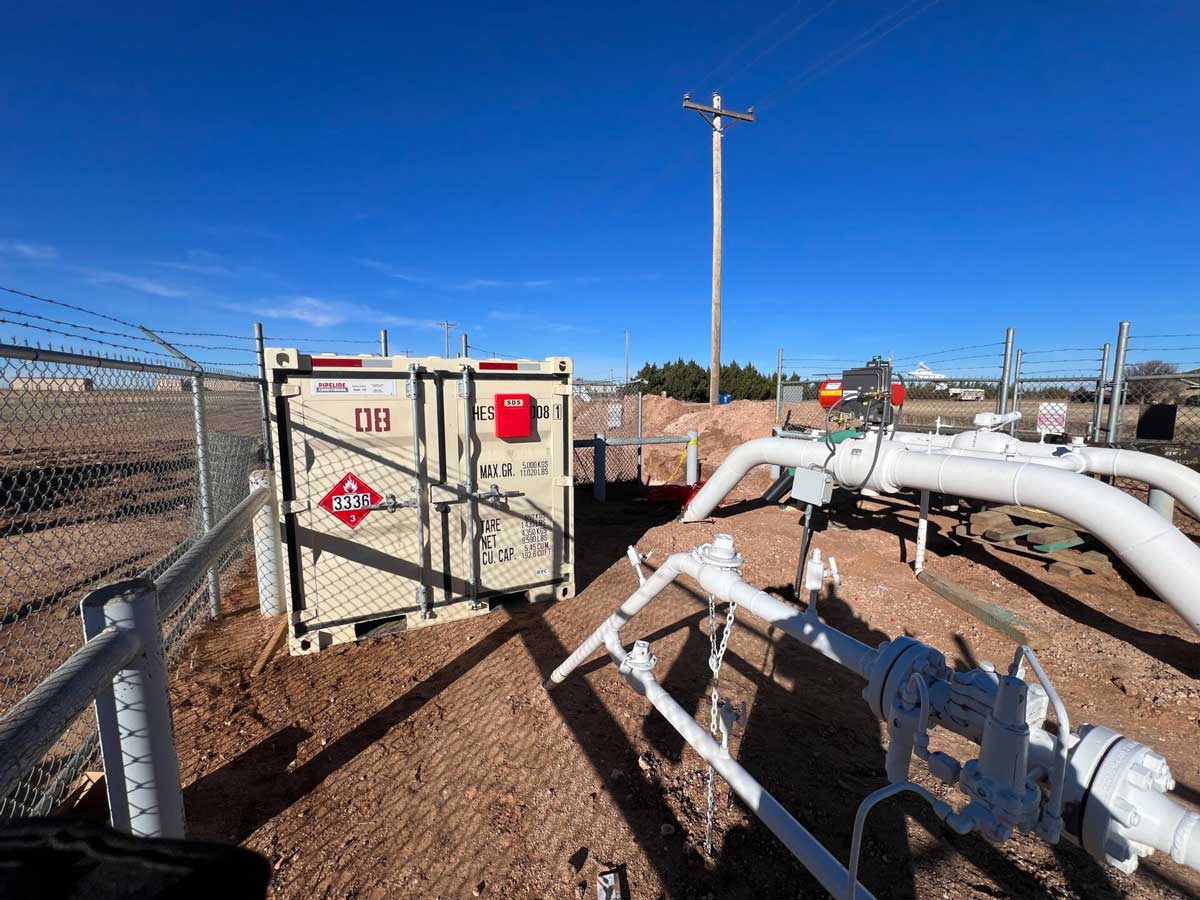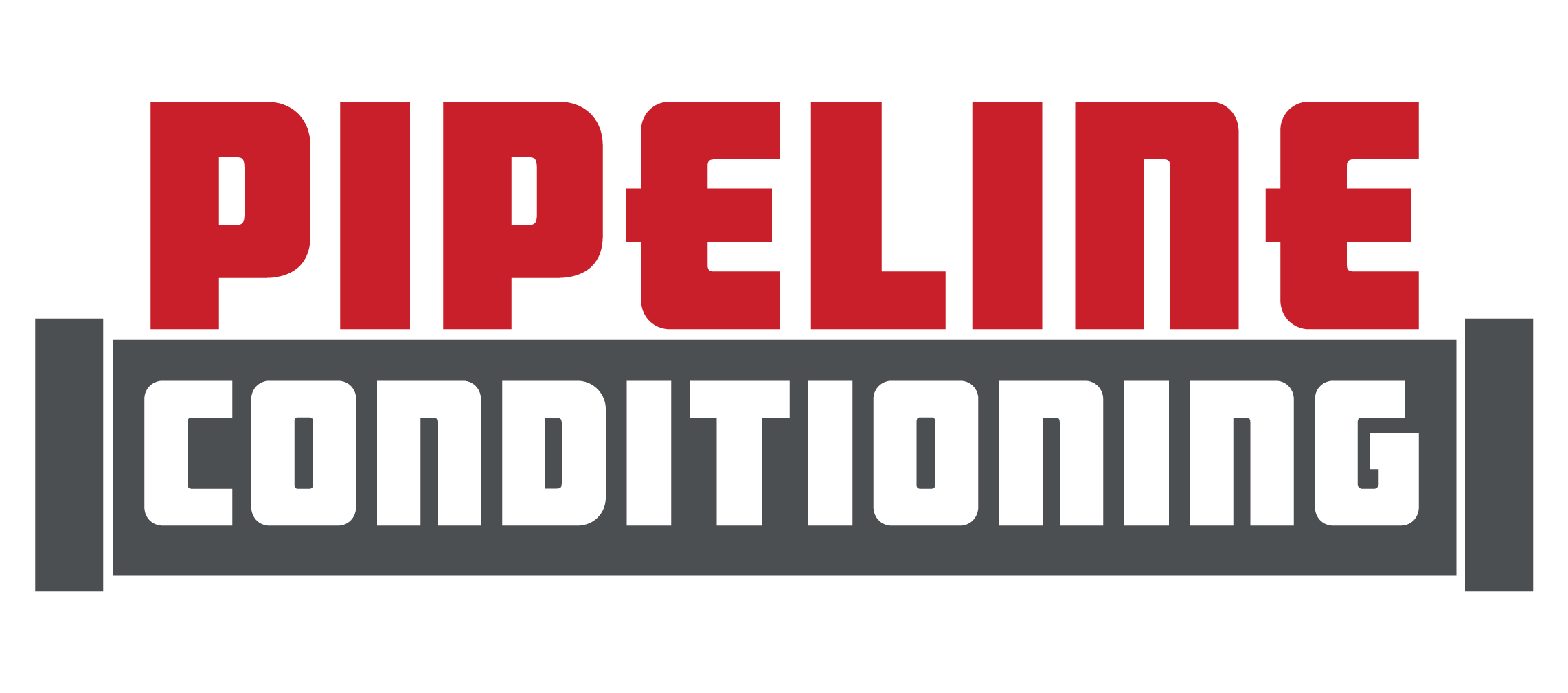Engineered Pipeline Pickling Services
Pipeline Conditioning offers engineered pipeline pickling services to ensure safe, compliant gas operations during the natural odor conditioning process.
What Is Pipeline Pickling?
Pipeline Pickling is a controlled engineering process that meets federal compliance requirements, readily detectable odorant levels during the conditioning of newly commissioned or modified natural gas pipelines.
When odorized natural gas first flows through a new pipeline, odorant (mercaptan or other) absorbs into the pipe walls until the pipe becomes fully saturated and can no longer absorb odorant (pickled). The natural conditioning process can take several days to multiple months to reach a saturation point. Pickling time depends on several factors, including pipeline length, diameter, flow rate, material, and system conditions (such as rust, moisture, and others).
This natural pickling can significantly reduce odorant concentrations in the gas, making leaks temporarily undetectable. If gas is not sufficiently odorized, safety and regulatory compliance are compromised.
Professional use of supplemental odorant injection, also known as conditioning, can ensure immediate odor compliance, leak detectability, and user protection while reducing the overall pickling timeframe.
Why Pipeline Pickling Is Critical for Safety
Odorization is the primary safeguard against natural gas leaks. Without engineered pipeline pickling, pipelines face:
- Insufficient Odor – Under-odorized gas may prevent leak detection by smell.
- Extended Vulnerability – Natural conditioning can take months, leaving pipeline personnel and customers at increased risk for extended periods of time.
- Regulatory Compliance Gaps – Low odorant levels may violate federal DOT (PHMSA) and state odorization requirements.
- Increased Liability – Undetectable leaks raise safety, legal, and financial risks associated with pipeline-related incidents.
Pipeline Conditioning’s engineered pipeline pickling services eliminate these risks by maintaining safe, detectable odor levels throughout the conditioning process.
Our Engineered Process
We deliver customized temporary odorization programs to safely accelerate pipeline conditioning and maintain compliance. Our approach ensures new or modified pipelines return to service quickly with correct odor levels.
Our Services Include:
- System Assessment & Planning – Evaluation of pipeline specs, flow requirements, and compliance needs.
- Temporary Odorizer Installation – Specialized equipment designed for your pipeline’s parameters and flow conditions that can be deployed at any location where pipeline maintenance is being performed
- Controlled Odorant Injection – Precise mercaptan injection to speed wall absorption while ensuring safe downstream odor levels for customers.
- Continuous Monitoring – Real-time odor level tracking and on-site personnel to ensure consistent compliance.
- Seamless System Transition – Smooth transfer to permanent odorization systems with no service interruptions.
Technical Capabilities

Our temporary odorization systems support diverse pipeline specifications:
- Flow Range: 0.001 to 100 MMSCFH
- Pipeline Types: Steel, plastic, and coated distribution lines
- Applications: Transmission, distribution, and residential systems
- Pressure Range: Low- to high-pressure gas operations
- Quick Deployment: Rapid setup minimizes downtime
Benefits of Engineered Pickling
- Safety Compliance – Immediate odor detectability ensures safe operations.
- Faster Project Completion – Significantly reduce conditioning time, often from months to weeks or days, depending on system parameters.
- Regulatory Confidence – Maintain full compliance during the conditioning process.
- Cost Efficiency – Avoid penalties, delays, and extended monitoring costs.
Expert Odorization Services
Ready to find out more?
Contact our technical team today to discuss your pipeline pickling requirements and receive a customized proposal.
